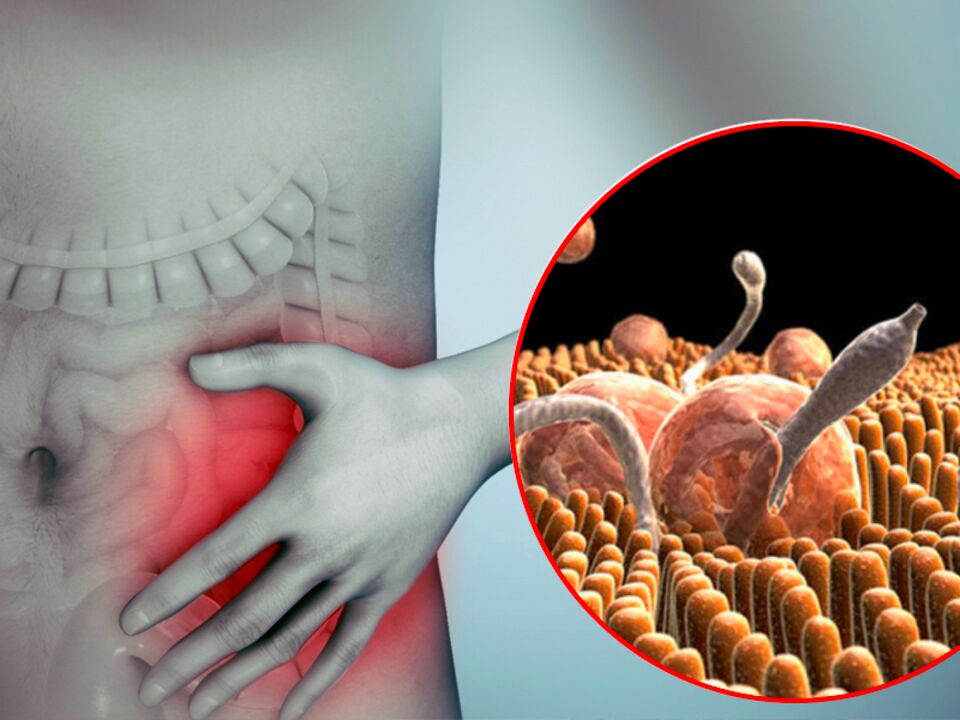
Parasites are everywhere: external and internal
ectoparasites
- Head, body and pubic lice use their mouthparts to pierce the host's skin and suck blood. Their infection is called pediculosis. Insects carry dangerous diseases - typhus and relapsing fever.
- Demodex mites (mites) are the causative agent of demodicosis. The length of the parasite is 0. 48 mm, making it invisible to the naked eye. Mites live in human hair follicles and cause inflammation (folliculitis) and dermatitis. Damage to eyebrows and eyelashes can also lead to eye infections.
- As the name suggests, scabies mites cause scabies. Female parasites are 0. 25-0. 38 mm long and bite through the epidermis (skin layer) to lay eggs. Scabies develops in the thickness of the skin. Parasitism can cause itching, rashes and allergic reactions. Affected: armpits, groin area, abdomen, interdigital spaces. The disease spreads quickly because the female lays 3-4 eggs per day and the larvae hatch from the eggs after 2-3 days.
internal parasites
worm
- Roundworms are roundworms up to 40 cm long that live in the small intestine. Females lay up to 200, 000 eggs per day. Worms can weaken the body, causing anemia and digestive disorders. When the worms gather into balls, they can clog the intestinal lumen and cause obstruction. Sometimes, huge, tangled balls of roundworms are removed from patients during surgery.
- Tapeworms (Tapeworm) are tapeworms that do not show symptoms for a long time once they enter the body. The growth of worms can cause bloating, anemia, gastrointestinal damage, and intestinal obstruction. People get tapeworms from eating poorly processed fish.
- Pork and cattle tapeworms enter the body when undercooked meat containing worm cysts (larvae) is eaten. The parasite reproduces rapidly, multiplying inside the host's body. Describes the case of a human being infected by 104 pork tapeworms, with a total length of 128 meters. Sometimes, tapeworm larvae begin "walking" throughout the body, causing tissue swelling, high fever, and muscle pain.
- Pinworms are small worms that live in the intestines. They are not as harmless as they seem. The infection causes an allergic reaction; the worms crawl into the appendix, causing inflammation.
- Nematodes are a group of roundworms that live in the intestines. Worms can irritate the intestinal wall and block bile ducts. The human body is home to 45 species of nematodes. The most common are intestinal eels and whipworms.
protozoa
- Giardia is an organism that affects the small intestine and causes peristalsis disorders. The disease is usually asymptomatic.
- Trichomonas and Chlamydia are protozoa that cause inflammation of the genitourinary system.
- Blastocystis are intestinal parasites that irritate mucous membranes and reduce immunity.
- Amoeba dysenteriae is the protozoal parasite that causes long-term ulcerative colitis. A person will experience abdominal pain, loose stools, and fever. This disease is dangerous due to intestinal perforation.
How to catch worms: Raw water, exotic food and unwashed hands
How to Suspect a Parasitic Infection
How to identify dangerous parasites
- Blood for clinical analysis. With helminthiasis, increased erythrocyte sedimentation rate, decreased hemoglobin, and increased eosinophil counts may be observed.
- Biochemical Blood Tests ALT, AST, Alkaline Phosphatase, Thymol Test, Amylase. Increases in these indicators are typical of nematode infection.
- Analyze bile, mucus, sputum, and muscle tissue.
Treatment of helminthiasis
Prevent parasitic infections
- Wash hands, vegetables and fruits thoroughly before eating;
- Remove dirt from under nails;
- Do not use other people’s combs, shoes, or household items;
- Do not walk barefoot on public floors and wear a hat when swimming in a swimming pool;
- Do not buy food at "self-service" markets or eat at questionable catering establishments;
- boil or fry meat or fish;
- Monitor the health status of pets and carry out deworming on time;
- When traveling, use insect repellent;
- Upon arrival from a foreign country, undergo a thorough inspection and take tests.



































